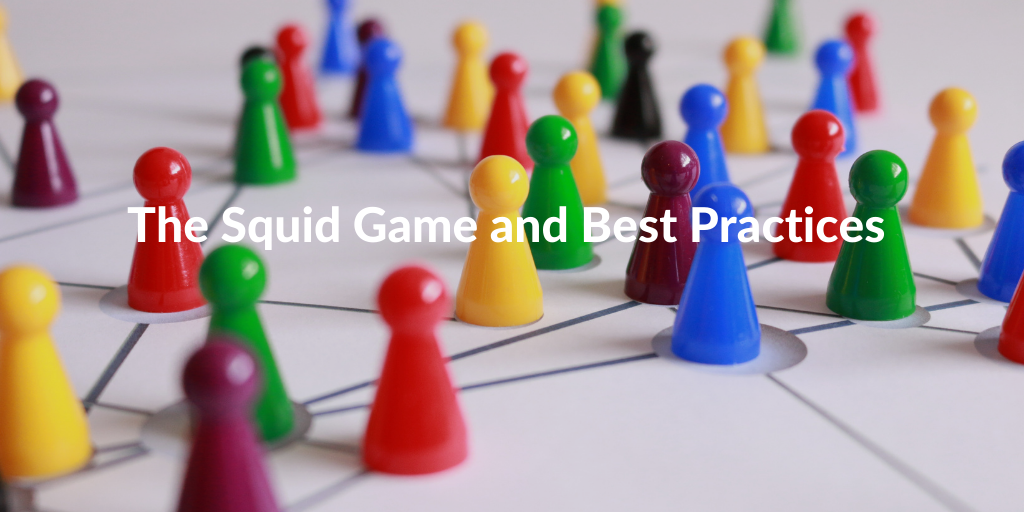Categories
Tags
Newsletter
Subscribe to the QRP International neswletter and get all the news on trends, useful contents and invitations to our upcoming events
Subscribe
Squid Game is the most viewed Netflix series in the platform’s history. It is a “death game” in which characters must survive six games. Whoever among the 456 contestants manages to make it to the end of the survival race will win 45.6 billion won, or about 33 million euros.
Some of the six games offered to the contestants require minimal skills and a large dose of luck, while for other tests, best practice methods and principles of different methodologies are applicable.
Risk appetite is commonly defined as the level of risk an organisation is willing to take and is also the principle upon which the entire series is built:
What is the risk appetite of the players? Are they willing to risk their lives and even die brutally for the chance to win the big cash prize?
If the risk appetite is high enough, then the game can go on.
The philosophy, principles and some of the fundamentals of Agile can be applied not only to some of the games from the series, but also to the way we approach the whole survival journey in a broader sense.
First of all, it is really the Agile mindset that is applicable and becomes advantageous in this situation. The Agile Manifesto, promotes a spirit aimed at improving and speeding up the decision-making ability of the individual and the team. Obviously, this turns out to be a key factor in the series we are talking about.
The second element of the Agile methodology are definitely the Sprints: each of the 6 games can in fact be seen as a sprint to be completed in order to get closer to the finish of the project.
Finally, we find the concept of prioritization: the Agile methodology allows us to identify priorities in order to find solutions to problems that arise from project work. In this case, the priority is to always identify new solutions in order to win each game.
Teamwork has been fundamental in some games and in some moments of the series, so it is easy to make a comparison with the work of a Scrum Team, which must act always having in mind the 5 values at the base of the framework: engagement, courage, focus, openness and respect.
These same values are also widely applicable in Squid Game:
Scrum therefore proposes to have self-organizing and cross-functional teams. Ensuring that a group works in this way, it is certainly easier to achieve the desired result (just think of the episode of the tug-of-war).
For further reading also: Scrum Master and Scrum Team – all answers to your questions
Surviving in Squid Game requires a proper balance between teamwork and autonomous work: knowing when to rely on others, and when to rely solely on your own skills and competencies (or luck, too!). Just like within an organisation when working on a project.
Every test is unknown to the players, who have to adapt and change their strategy on the spot.
In change management, the most important skills to cope with this kind of situation, are definitely high-level cognitive skills (such as creative thinking, decision making, processing and interpreting complex information, project management, …). Also social and emotional skills (including communication, negotiation, leadership, adaptability and continuous learning) play an important role here.
In particular, it is essential to know how to make decisions during changes and being able to cope with anxiety due to the high uncertainty of some situations. Dealing with the influence of prejudices yet effectively deciding how to go forward (prejudices about the environment, other resources or one’s own capabilities for example) and coping successfully with emotions that could have a strong impact on the type of decisions made.
For more information read also: Change is constant and present